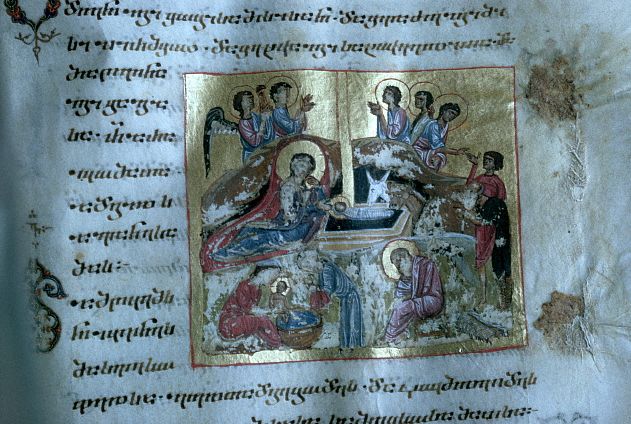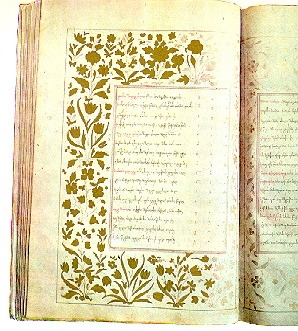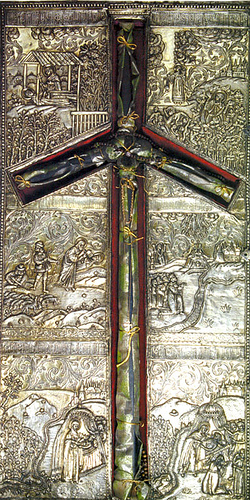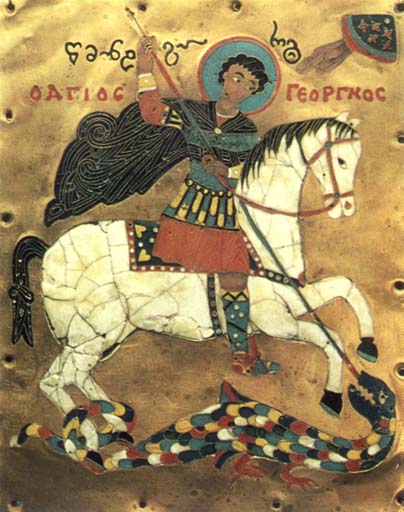| Maps | Language | Theater and Opera | Cinema | Wine | Amirani |
|
Georgian culture evolved over thousands of years with its foundations in Iberian and Colchian civilizations, continuing into the rise of the unified Georgian Kingdom under the single monarchy of the Bagrationi. Georgian culture enjoyed a golden age and renaissance of classical literature, arts, philosophy, architecture and science in the 11th century. The Georgian language, and the Classical Georgian literature of the poet Shota Rustaveli, were revived in the 19th century after a long period of turmoil, laying the foundations of the romantics and novelists of the modern era such as Grigol Orbeliani, Nikoloz Baratashvili, Ilia Chavchavadze, Akaki Tsereteli, Vazha Pshavela, and many others. Georgian culture was influenced by Classical Greece, the Roman Empire and the Byzantine Empire, and later by the Russian Empire which contributed to the European elements of Georgian culture.
A page from a rare 12th century Gelati Gospel depicting the Nativity from the Art Museum of Georgia in Tbilisi. |
Grapevine Cross of Saint Nino from the 4th century CE |
|
|
Georgia is well known for its rich folklore, unique traditional music, theatre, cinema, and art. Georgians are renowned for their love of music, dance, theatre and cinema. In the 20th century there have been notable Georgian painters such as Niko Pirosmani, Lado Gudiashvili, Elene Akhvlediani; ballet choreographers such as George Balanchine, Vakhtang Chabukiani, and Nino Ananiashvili; poets such as Galaktion Tabidze, Lado Asatiani, and Mukhran Machavariani; and theatre and film directors such as Robert Sturua, Tengiz Abuladze, Giorgi Danelia and Otar Ioseliani.
St George slaying the Dragon. 15th century cloisonné enamel on gold. (National Art Museum of Georgia) |
The Icon from Martvili (10th century) |










